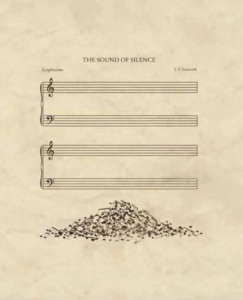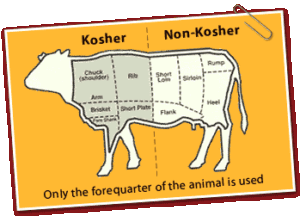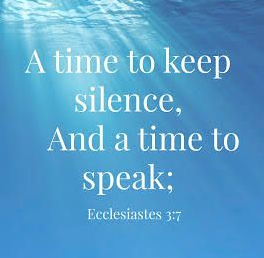Shmini 2024: Sounds of Silence
by devadmin | April 4, 2024 9:27 pm
Raboyseyee and Ladies,
Sounds of Silence:
So happens that just last week (March 28th), the Wall Street Journal featured a piece on Paul Simon, he, most well known as one half of the dynamic duo Simon & Garfunkel, two nice Jewish boys from Queens who -while together as a duo- put out five studio albums, fifteen compilation albums, four live albums, twenty-six singles, one soundtrack, and four box sets.
As the Ois was reviewing this week’s parsha featuring the “eighth day,” the laws of kosher, and Aharoin’s reaction to the premature and unexpected death of his two of his four children, all while thinking of a new topic here in year fourteen, I found myself humming the tune from their song and titled second album, ‘The Sounds of Silence’. Put out in 1966, this iconic song has been covered by dozens of musicians all over the world in many languages, including Hebrew. More on silence down below.

Here in the Five Towns, there is a new player in town and Bingo is his name! Yes indeed, after many months of great anticipation, Bingo -which bills itself as the house of savings for the kosher consumer- opened its doors two weeks before Purim. The entire town is buzzing, its parking lot full kimat all hours of the day, and in more recent days -to continue until Pesach- they are open till midnight. Givaldig! Guess what? Last night at 11:40 PM, the lot was nearly full. The bottom line: the kosher consumer wants a break from the very high prices we are charged for the privilege of eating kosher!

The good news: Bingo’s prices are in fact lower. The bad news: they do not carry -at least not yet- all the glatt kosher shopper needs -or has gotten used to. Many are still finding the need to fill in and now many begin their shopping journey at Bingo but wind up in the aisles of Seasons, Gourmet Glatt, Kol Save and Rockaway Kosher. More bad news: for some reason, orthodox people believe that lines designating parking spaces are but suggestive and are using two spots for one car. Mamish disturbing! Their tires should be flattened and pictures of their cars posted on an idiot-shame site.
Eating kosher? Who mandated that? Read all about kosher in this week’s parsha of Shimini, where, following the inaugural ceremonies and the inexplicable death of two of Aharoin’s sons -out of four- and without a break for some grieving, a few eulogies, sitting shiva, the heylige Toirah introduces us to a brand new subject: Kosher! The rest of the parsha, the last 47 pisukim are dedicated to delineating the distinction between kosher and non-kosher meat, fowl, fish and even insects. We are to eat only those designated by the RBSO as kosher. Note that fowl has its own designation but seems to have joined meat regarding most restrictions. Why? Ver veyst? Not to worry: as the world continues on its path towards utter chaos, Moshiach may be getting ready to make an appearance and will surely -so the rabbis tell us- correct the error made by previous rabbis when blurring the distinctions the RBSO made when introducing the chicken as being a separate category.

Shoin, let us discuss the sudden death of Aharoin’s two sons. While the heylige Ois -in his 14th year- has covered this topic -more than once- along with the various reasons proffered –some mamish nonsensical- as rationale for their sudden passing- we have never discussed Aharoin’s reaction. It was quite shocking, more below.
First the facts: it’s the eighth day but day one. What’s pshat? Those who read last week’s post, will avada recall that Moishe spent seven days teaching Aharoin and his sons -all four of them, and collectively- they were the only koihanim at the time, how to prepare and manage the myriad sacrifices that were to be brought daily. The next day, day eight, was indeed day one when Aharoin took over the reigns as the koihen godol (high priest) serving with his four sons. One can just imagine the pride, the nachas Aharoin was feeling. The RBSO seemingly had forgiven him for his participation in the eygel caper and here he was working with his kinderlach. Wow! Ober, suddenly and without warning, the heylige Toirah switches gears and goes from great joy to utter sadness and shock and tells us that two young men- both single- Aharoin’s two older sons, met a sudden, tragic and horrific death. They were burnt alive in their father’s presence. Aharoin was right there. OMG! Ober, what took place? This is what we know: Nodov and Avihu took their firepans, put fire and incense on them and offered “alien fire which G-d had not commanded them.” A fire immediately came forth from Heaven and consumed them. Let us please read the pisukim (Vayikra10:1-3).
וַיִּקְח֣וּ בְנֵֽי־אַ֠הֲרֹ֠ן נָדָ֨ב וַאֲבִיה֜וּא אִ֣ישׁ מַחְתָּת֗וֹ וַיִּתְּנ֤וּ בָהֵן֙ אֵ֔שׁ וַיָּשִׂ֥ימוּ עָלֶ֖יהָ קְטֹ֑רֶת וַיַּקְרִ֜יבוּ לִפְנֵ֤י יְהֹוָה֙ אֵ֣שׁ זָרָ֔ה אֲשֶׁ֧ר לֹ֦א צִוָּ֖ה אֹתָֽם׃
Now Aharoin’s sons Nodov and Avihu each took his fire pan, put fire in it, and laid incense on it; and they offered before יהו alien fire, which had not been enjoined upon them.
וַתֵּ֥צֵא אֵ֛שׁ מִלִּפְנֵ֥י יְהֹוָ֖ וַתֹּ֣אכַל אוֹתָ֑ם וַיָּמֻ֖תוּ לִפְנֵ֥י יְהֹוָֽ׃
And fire came forth from יהוה and consumed them; thus they died at the instance of יהו.
וַיֹּ֨אמֶר מֹשֶׁ֜ה אֶֽל־אַהֲרֹ֗ן הוּא֩ אֲשֶׁר־דִּבֶּ֨ר יְהֹוָ֤ ׀ לֵאמֹר֙ בִּקְרֹבַ֣י אֶקָּדֵ֔שׁ וְעַל־פְּנֵ֥י כׇל־הָעָ֖ם אֶכָּבֵ֑ד וַיִּדֹּ֖ם אַהֲרֹֽן׃
Then Moishe said to Aharoin, “This is what יהוה meant by saying: Through those near to Me I show Myself holy, And gain glory before all the people.” And Aharoin was silent.
As you can only imagine, the medrish and so many others struggled mightily to determine precisely why their offering provoked such a swift and harsh punishment. What crime did they commit? Let’s read the words one more time before we get to their father’s reaction: Now Aharoin’s sons Nodov and Avihu each took his fire pan, put fire in it, and laid incense on it, and they offered before the RBSO alien fire, which the RBSO had not commanded them. And fire came forth from the RBSO and consumed them; thus they died in the presence of the RBSO. Does this alien or strange fire read like a terrible crime? Zicher not when compared to the crimes we commit daily that must surely anger the RBSO, and yet we’re here? What’s pshat?
Commentators the Ois has quoted over the years have asked, “Why did Nodov and Avihu concoct a ‘strange fire?’” And, was this reason enough for their immolation by the RBSO? As mentioned earlier, we have covered this topic, ober let us, before moving over to Aharoin and his reaction to the instant death of his children right before his eyes quickly review. Says the medrish (Vayikra Rabbah 20:8) that one of four things took place: “on account of their drawing near, and on account of the sacrifice, on account of the alien fire, and on account of the fact that they did not consult one another”. What really took place? Ver veyst? The bottom line: When sages offer a number of reasons to explain a particular incident, it is often because none of them, in and of itself, is satisfactory. Another bottom line: for us mortals, it is hard to believe that any specific act could have justified the sudden and deadly punishment meted out.
The bottom line on the boys: The text of the heylige Toirah seems to indicate that they did something wrong. Specifically what, ver veyst? Moreover, the heylige Toirah refuses to tell us why it was wrong, so wrong that the RBSO set them aflame. We must assume that whatever their sin or crime, it was unintentional. Got questions? Save them for that fateful face to face meeting.
The medrish -and may others- offer different ideas, some quite outlandish, ober all that can be found in archives (Oisvorfer.com). This year we shall focus on Aharoin and his reaction to witnessing the death of his children.
What happened next? We are brought into the scene. Then Moishe said to Aharoin, “This is what the RBSO meant when He said: ‘Through those near to Me I show Myself holy, and gain glory before all the people.’” And Aharoin was silent. What does that even mean? Moishe is telling Aharoin that the RBSO showed us the RBSO’s holiness just now, in this moment? And gained glory before all the people? Are we being told that when we transgress certain things that the RBSO has not even told us about, we could get killed? Instantly? Yikes! Is this a religion we want to be part of? Not many parshas back, the Yiddin -some- fashioned the eygel, danced around it, worshipped it -avoido zoro mamish, and the RBSO forgave them -most anyway? Repentance was possible. Ober, bring unauthorized incense and it’s over in a flash?! Did the boys hit the get-burnt-alive tripwire? Was their incense illegal at the time? Was their dealer unlicensed? And what was Aharoin’s reaction to all of this? Did he scream out and cry? No. Was he comforted? Angry? We have no idea, because we read only this in posik 3: וַיִּדֹּם, אַהֲרֹן.
And Aharoin was silent. That’s all we get from Aharoin? No display of emotion? No response of any kind? Just silence? And just like that, once the bodies were removed, it’s veyter gigangin (onward), the heylige Toirah moves on to a new topic. Ober, we are left to wonder: what was happening for Aharoin in that moment? What was the nature of his silence? And what happens to a servant of the RBSO when his children are taken away? Is it not the worst thing that can happen? As an aside, Aharoin is the second major figure in the heylige Toirah to lose not one, but two children. Let us recall that Yehudah lost two of his three sons leaving only his last son Sheylo and perhaps many shaylis (questions) to ponder. But Aharoin’s loss feels epes even more harrowing, because he lost them both in one fiery instant:
This topic is avada (of course) widely discussed, and let us begin with Rashi who says azoy: Aharoin’s silence to the trauma was a submission and noble self-restraint. Aharoin was silent because he devoutly accepted his fate as the RBSO’s will–without challenge, tears, or resentment. Not only did he not cry; he had no inclination to, so comforted was he by the presumed justice of the loss (even if it could not be fully discerned).
Says the Seforno agreeing with Rashi but going even further, azoy: And Aharoin was silent – because he took comfort in the sanctification of G-d that they had achieved through their death.
וידום אהרן שהתנחם בקידוש ה‘ שנקדש במותם
Aharoin wasn’t just dutifully accepting of their death. He actually saw their sacrifice itself as a kind of holy offering. Maybe Aharoin understood Moishe to mean exactly that: G-d has been glorified through this sacred immolation. Maybe he was even proud.
Based on these opinions, and if this is mamish pshat, Aharoin manifested extreme piety, ober, as humans and parents, his absence of feeling at a time of epic loss confounds the heart and maybe also disturbs the mind. And taka there are other opinions, and says the Abravanel (Abarbanel on Torah, Deuteronomy 10:1) that pshat is punkt farkert (opposite). Aharoin’s silence did not indicate his lack of emotion, but rather his overwhelming emotion.
…אבל פירוש וידום אהרן הוא שנהפך לבו והיה כאבן דומם ולא נשא קולו בבכי ובמספד באבל אב על בנים. גם לא קבל תנחומים ממשה כי לא נותרה בו נשמה והדיבור אין בו ולכן אמר וידום אהרן שהוא מלשון דומם ושוחק.
“The meaning of ‘And Aharoin was silent’ is that his heart turned to inanimate stone and he could not raise his voice in tears, eulogizing, or mourning like a bereaved father. He also could not be consoled by Moishe because his soul was gone, as was his speech. For this reason, the verse says “va’yidom Aharoin,” “And Aharoin was silent,” from the language of [that which is] inanimate [“domem”] and eroding. Aharoin was stunned into silence. Overwhelmed by the unimaginable loss, on the same day, at the same moment, of his two beloved sons, he froze. He could not be comforted. He could not feel anything at all. He was just in total shock. The fire that killed Aharoin’s sons seemed to come from the RBSO -so the posik tells us. But how does one find G-d in that? How can you possibly see G-d when your children lay dead before you? How dare Moishe – how dare any of us – try to find some divine justification for such a tragedy? So which was it? A silence of faith or a silence of doubt? A silence of serenity or a silence of anguish? Says the Baal HaTurim so gishmak azoy:
The phrase “was silent,” in this form, is found twice, once in the heylige Toirah and later in the Novee: in our parsha, “And Aharoin was silent.” (וידם אהרן). Later in Tanach (Joshua) we find this: And the sun was silently [still].” (וידם השמש)
וידום ב‘ וידום אהרן וידום השמש
In the Novee, the words above are found when describing the famous battle at Givon when, in order to have enough daylight to keep fighting, Yehoshua commanded the sun to stand still in the sky, and it “stopped” (using the same language as “silence,” va-yidom). This event, along with the splitting of the Red Sea, is one of the paradigmatic miracles in the Bible: the day the sun stood still.

What was happening to Aharoin in that silence? Sadly, it was that sensation that often overtakes us in times of great trauma: time stands still. Everything starts to move slowly, and then stops. And all the sounds become muffled as we sink into a chamber of stunned silence. The world recedes, and for an extended instant there is only that surreal state of shock that keeps the inevitable and overwhelming rush of pain temporarily at a strange distance. Seemingly, Aharoin was in that chamber of silence. He was reeling from the sudden loss – still confused, still putting together the impossible reality of what had just happened. Moishe was trying to talk to him, but Aharoin was far away. The world around him had come to a halt. To Aharoin, it was we who had gone silent, standing still, like the sun at Givon. Aharoin would not hear it. Could not hear it. He was in his silence. Heavy as his heart was, he elected not to indulge his misery, but to find a way to press on in the face of it–to insist on the possibility of life even when circumstances threatened to destroy his soul. He was the man.
The final bottom line: it is very challenging to see the RBSO in all the terrible tragedies of this world. Of late, many, including the Ois have been having a shtikel faith crisis as the hostages are on his mind, as the war continues and more lives are being lost daily. On the other hand, many the Ois has spoken to, have discovered new faith in the RBSO. Not in the fire, but in His silence.
A gittin Shabbis!
The Heylige Oisvorfer Ruv
Yitz Grossman
Source URL: https://oisvorfer.com/shimini-2024-sounds-of-silence/